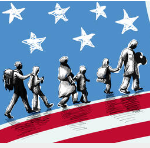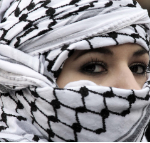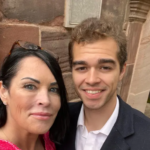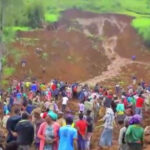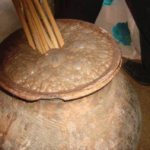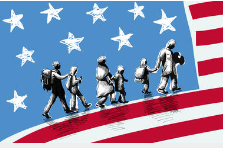Bangladesh this week announced the closure of all public and private universities for an indefinite period due to massive countrywide protests at dozens of universities by students demanding reforms to the jobs quota system for coveted public services posts.
The protests that began on 1 July turned violent this week, rising from 32 deaths on Thursday to over 100 people reported killed by Saturday, as well as hundreds injured as a strict curfew with a ‘shoot-on-sight’ order was imposed across Bangladesh on Friday.
The government deployed the paramilitary force Border Guard Bangladesh from Monday afternoon in the capital Dhaka and in Chattogram (Chittagong), Bogura, Rangpur, Rajshahi and Gazipur, in an effort to keep the situation under control.
In the wake of the clashes, the government also closed secondary schools and colleges indefinitely, and suspended the Higher Secondary Certificate exams – one of the biggest public exams, taken in the final year of high school, which had been scheduled for Thursday – Education Ministry Spokesperson MA Khair told University World News.
There are about 20 million students at some 30,000 schools and colleges, and 4.4 million students enrolled in higher education, which includes 55 public and 114 private universities.
Bangladesh’s University Grants Commission (UGC) said on Monday night that universities, medical colleges and other institutions will remain closed until further notice.
UGC Acting Chairperson Professor Muhammed Alamgir told University World News that the regulatory authorities took the step in line with the government’s decision and for the sake of students’ safety.
Dhaka University student Sargis Alam, one of the coordinators of the anti-discrimination student movement, said the decision to vacate dormitories was taken to slow down the movement.
“Students will remain on the street until the government accepts their demands. Students are fighting for rational demands,” he told University World News.
But Foreign Minister Hasan Mahmud said: “An attempt is being made to transform the anti-quota movement into an anti-state one using the emotions of young students. The government will not allow an unstable situation to develop.”
Call for law to reform quota system
Public university students alongside job seekers have been on the streets since 1 July, occupying key city intersections, highways and railway lines across the country and calling for a law to reform the jobs quota system while still keeping a 5% quota for members of underprivileged communities and those with special needs.
Around 56% of government jobs were reserved under rules in place before 2018, amounting to hundreds of thousands of secure and often well-paid jobs.
Of these 30% were for the children and grandchildren of those who fought for Bangladesh independence from Pakistan in 1971; 10% for women; 10% for people from underdeveloped districts; 5% for members of indigenous communities; and 1% for persons with disabilities.
In 1996, as the numbers of those claiming freedom fighters’ quota positions started to dwindle, the government extended the quota to children of freedom fighters. In 2009, it was further expanded to include the grandchildren of freedom fighters.
A 2018 government circular abolished the quota system for first and second-class jobs in the wake of massive quota reform protests.
The current protests began after the High Court on 5 June ruled the 2018 circular illegal, effectively reinstating the quota system. The government appealed against the decision and on 10 July the Supreme Court suspended the High Court order for a month.
Referring to students’ demands for quota system reform, Public Administration Minister Farhad Hossain said: “If the matter was solely in the hands of the government, we could have considered their demand.
“As it is now a matter pending before the court, steps will have to be taken as per the instructions of the court and we are waiting for that,” he added. The Supreme Court is scheduled to hold another hearing in early August.
Prime Minister Sheikh Hasina on Wednesday urged protesting students to keep faith in the country’s judicial system. “I believe our students will get justice. They will not be disappointed,” she said in a television address to the nation.
Hasina stressed that those who carried out killings and destruction will be brought to justice, irrespective of their party affiliation, and promised a judicial inquiry into each killing.
Protests turn violent
The protests started peacefully. Students were also boycotting classes and exams, and students submitted a memorandum to President Mohammed Shahabuddin, defying police obstruction to head for the Bangabhaban, the president’s official residence.
But the situation turned volatile on the night of 14 July.
Hasnat Abdullah, one of the coordinators of the quota reforms protests, said “state-sponsored attacks” were carried out against the protesters across the country, referring to the Bangladesh Chhatra League (BCL), the student wing of the ruling Awami League party.
The Awami League is the party founded by freedom fighter Sheikh Mujibur Rahman, father of the current prime minister Sheikh Hasina.
Thousands of students at Dhaka, Jahangirnagar, Rajshahi and Chittagong universities left their dormitories to protest what they said was a “disparaging comment” on 14 July by the prime minister regarding quotas in government jobs.
Hasina had said: “Why do they have so much resentment towards the freedom fighters?
“If the grandchildren of the freedom fighters don’t get quota benefits, should the grandchildren of Razakars get the benefit?” she said in answer to a journalist’s question, using a derogatory term for those who collaborated with Pakistan during the 1971 war of independence.
Students chanted Cheyechilam odikhar hoye gelam Razakar! – or “We want rights, but we are labelled Razakars”.
Attacks by BCL groups at Dhaka University’s campus triggered fierce clashes lasting about five hours. Armed with sticks, iron rods and clad in helmets, hundreds from the pro-ruling party student body teamed up with outsiders to beat up the demonstrators at various points on campus.
A student from the Non-Quota Movement of Bangladesh, primarily led by university students, said in an email on 15 July that more than 400 students from Dhaka University had been injured when their peaceful protests were met with “unwarranted brutality”.
Students of at least four universities – Jagannath University, Jahangirnagar University, Rajshahi University and Chittagong University – were also attacked by BCL groups during anti-quota protests.
Infuriated by the BCL’s brutal clubbing of demonstrators on Monday, the protests escalated on Tuesday, joined by students from private universities and colleges and, in some cases, higher secondary schools.
Students at several private universities including United International University, North South University, Independent University Bangladesh, American International University – Bangladesh, and Ahsanullah University of Science and Technology, joined the street demonstrations on 16 and 17 July, blocking several roads in the city.
During clashes between BCL groups and police and demonstrators on Tuesday, three people were killed in Chattogram, two in Dhaka and one in Rangpur. Media reported clashes in many cities, including Rajshahi, Bogura, Jhenidah, Cox’s Bazar, Narsingdi, Sirajganj, Barisal, Kishoreganj and Faridpur.
Quotas are a long-standing concern
Mahfujur Rahman, a DU student protester, told University World News that the quota system was discriminatory, and that meritorious students were often deprived of government jobs.
He acknowledged that the state and government had a responsibility towards freedom fighters but noted that their children and grandchildren continued to enjoy a 30% quota.
“There are about 200,000 freedom fighters, if we even calculate 10 people per family, it means two million people out of 170 million get a 30% quota. On the other hand, the whole population of indigenous groups and persons with disabilities are getting a 6% quota. Isn’t it discriminatory?” Rahman said.
The quota system was first introduced through an executive order in 1972.
“The quota system needed to be evaluated from time to time. This is not happening in Bangladesh,” Firoz Mia, who retired as an additional secretary of the public administration ministry, told University World News.
“It is inappropriate that there would be an abnormal quota for a certain group. On the other hand, there is no scope for abolishing all kinds of quotas in public service, as the constitution favours the quota system,” said Mia, who has authored several books on public administration.
Rights group Amnesty International condemned the attacks against quota reform protesters and urged the Bangladesh government to immediately ensure the safety of protesters.
The United Nations also expressed deep concern and urged Bangladesh to ensure the safety of students participating in the quota reform movement.
This article was updated on 19 July 2024, and again on 20 July 2024 to reflect higher death figures.



